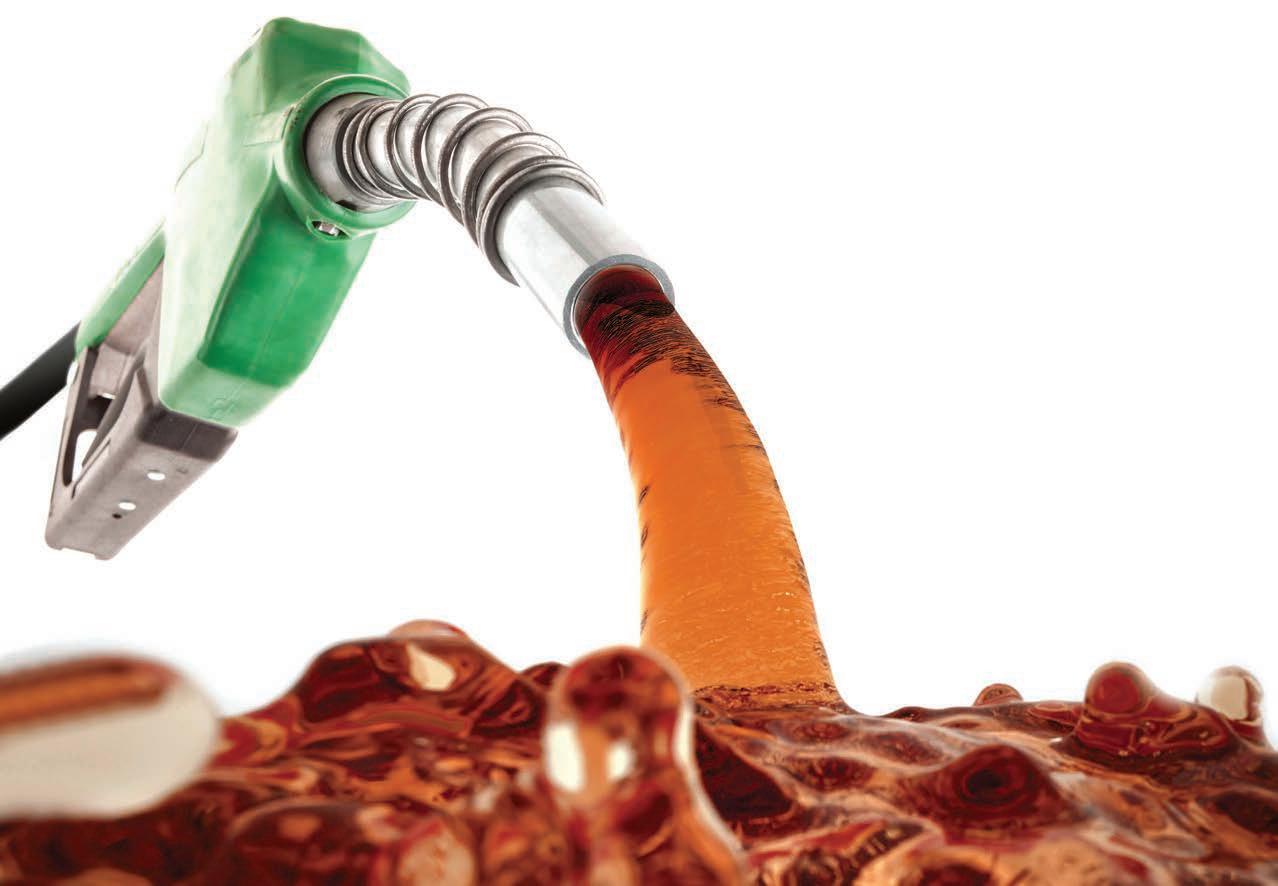
7 minute read
National News
Producer Price Index Growth Moderates
Two key inflation reports were released in early December and inflation remains persistent. The first report was the producer price index, which measures changes in prices received by producers of goods and services. The finished goods PPI jumped 0.2% from October and rose 10.6% from November 2021. Although this was the smallest year-over-year change since August 2021, wholesale prices remain very sticky. Interestingly, the core PPI, which excludes volatile food and energy prices, rose 0.5% from October and 8.1% from a year earlier.
The other report that was released was by the Census Bureau was the international trade in goods for the month of October. The export of goods contracted by 2.1% that month, the second monthly decline following a 2.3% drop in September. However, this was only the third decline in 2022 and goods exports are up 10.4% so far this year and 11.7% from October 2021. The very strong US dollar is beginning to weigh on US exports as our goods become more expensive to foreign buyers simply because their currency has weakened significantly versus the dollar. Following from foreign goods becoming cheaper, imports of goods also changed course recently, from consecutive declines in the second quarter to sequential increases in September and October, 1.1% and 0.9%, respectively.
60%
40% Durable Goods Orders Through October 2022
Oct: 10.7%
20%
0%
-20% Year-Over-Year Percent Change
-40% 2018 2019
Source: Census Bureau
2020 2021 2022
Source: ATA Economics Department
20% 15% 10% Finished Goods Producer Price Index (PPI) Through November 2022
Key: Total PPI PPI x Food & Energy
Total: 10.6%
5% 0% -5% -10% 2018 2019
Source: Bureau of Labor Statistics
2020 2021 Year-Over-Year Percent Change
2022
Oil Prices Increase
Oil prices gained more than $2 a barrel in mid-December based on supply jitters, as a key pipeline supplying the United States closed and Russia threatened a production cut even as China’s loosening COVID-19 restrictions bolstered the fuel demand outlook.
Brent crude futures were up $2.38, or 3.1%, at $78.48 a barrel; however, previously in December, Brent and WTI fell to their lowest since December 2021 as investors worried a possible global recession could hurt oil demand.
Traders worried about how long Canada’s TC Energy Corp would take to clean up and restart its Keystone oil pipeline after more than 14,000 barrels of oil leaked last week, the largest U.S. crude oil spill in nearly a decade.
TC Energy shut the pipeline after the spill was discovered late last Wednesday in Kansas. The company told officials in Washington County, Kansas, that they have not yet determined the cause and were excavating around the 622,000 barrel-per-day Keystone line, a critical artery shipping heavy Canadian crude to U.S. refiners. The outage is expected to shrink supplies at the Cushing, Oklahoma storage hub, delivery point for benchmark U.S. crude oil futures.
Bank of America Global research said Brent could rebound past $90 per barrel on the back of a dovish pivot in the U.S. Federal Reserve’s monetary policy and a “successful” economic reopening by China. China, the world’s biggest crude oil importer, continued to loosen its strict zero-COVID policy, though streets in the capital Beijing remained quiet and many businesses stayed closed.
ATA, Others Oppose Bill That Would Drop Renewable Diesel Labeling
American Trucking Associations and the Truckload Carriers Association have asked U.S. Senate leaders to block legislation that aims to eliminate fuel pump labeling requirements for renewable diesel fuel, a move the groups contend would cause confusion for motor carriers regarding what’s being pumped into their trucks’ tanks.
The legislation, sponsored by Republican Sen. John Barrasso — the ranking member of the Senate Committee on Energy and Natural Resources — would repeal the Federal Trade Commission’s pump labeling requirements that ATA and TCA contend would cause diesel costs to rise and leave trucking companies with no way of ascertaining the environmental attributes and sustainability advantages of the fuel they purchase. “In recent years, truck drivers and trucking fleets have purchased increasing quantities of renewable diesel,” said the joint ATA/TCA letter, dated Nov. 28. “In so doing, they have lowered the amount of money they spend on fuel, decreased their emissions footprint, and been able to quantify those reductions in response to regulatory demands or company sustainability goals.”
The bill, if it passed, would lead to a situation where wholesalers, retailers and consumers would not fully be aware whether they are purchasing renewable diesel or petroleum diesel blends, according to ATA and TCA.
The legislation was described in the Congressional Record as “a bill to increase the production and use of renewable diesel and sustainable aviation fuel, and for other purposes.”
“Eliminating the renewable diesel label at fuel pumps also would prevent trucking companies from complying with forthcoming federal regulations that will obligate many of them to calculate with precision the volume of renewable diesel that they consume,” the joint letter said.
REPUBLICAN SEN. JOHN BARRASSO
SOURCE: American Trucking Associations

US Department of Labor Proposes Rule Change
The U.S. Department of Labor has proposed a rule that would set multi-factor standards for what constitutes an independent contractor, a departure from previous federal guidelines adopted under the Trump administration that were generally regarded as favorable to the trucking industry’s use of independent owneroperators, experts said.
The Department of Labor said its proposal “is not intended to disrupt the businesses of independent contractors who are, as a matter of economic reality, in business for themselves.”
The DOL notice of proposed rulemaking said that each of six factors in the economic realities test must be weighed, and that it’s the totality of the circumstances that is important.
“The NPRM jettisons the Trump regulation’s emphasis on two core factors — nature and degree of control over the work and the worker’s opportunity for profit or loss — and proposes to weigh all six of its proposed factors more equally,” said a Scopelitis law alert. “The NPRM also eliminates the Trump regulation’s emphasis on actual practice in favor of also weighing theoretical possibility. And in a break from the weight of judicial precedent, the NPRM explains that all instances of control should be considered, even if deriving from contractual requirements, quality control or safety standards, or legal obligations.”
The six factors DOL plans to weigh include:
• the degree of the alleged employer’s right to control the manner in which the work is to be performed
• the worker’s opportunity for profit or loss depending upon their managerial skill
• the worker’s investment in equipment or materials required for their task, or their employment of helpers
• whether the service rendered requires a special skill
• the degree of permanence of the working relationship
• the extent to which the service rendered is an integral part of the alleged employer’s business
“Misclassification is a serious issue that denies workers’ rights and protections under federal labor standards, promotes wage theft, allows certain employers to gain an unfair advantage over law-abiding businesses, and hurts the economy at large,” the DOL statement said.
“While independent contractors have an important role in our economy, we have seen in many cases that employers misclassify their employees as independent contractors, particularly among our nation’s most vulnerable workers,” said Secretary of Labor Marty Walsh. “Misclassification deprives workers of their federal labor protections, including their right to be paid their full, legally earned wages. The Department of Labor remains committed to addressing the issue of misclassification.”
Hugh Ekberg, CRST The Transportation Solution, is the chairman of ATA’s independent contractor committee and has expressed the committee’s grave concerns about the proposed rule and urged state trucking associations to weigh in on the proposed rule.
“The current model is effective and the new rule only blurs the line and opens the door for trial attorneys to litigate,” said Hugh.
The Iowa Motor Truck Association has many member companies that have agreements with independent contractors and as they developed comments against the proposed rules they asked for members to share their agreements. IMTA then used sections of these agreements with all company information redacted as part of their comments to highlight how effective the current rule is in the independent contractor arrangement.
All comments were due on Tuesday, December 13.

ABC Test
The three-pronged ABC test dictates that a worker is considered an independent contractor to whom a wage order does not apply only if the hiring agency establishes:
A: That the worker is free from the control and direction of the hirer in connection with the performance of work, both under the contract for the performance of such work and in fact.
B: That the worker performs work that is outside the usual course of the hiring entity’s business.
C: That the worker is customarily engaged in an independently established trade, occupation or business of the same nature as the work performed for the hiring entity.










